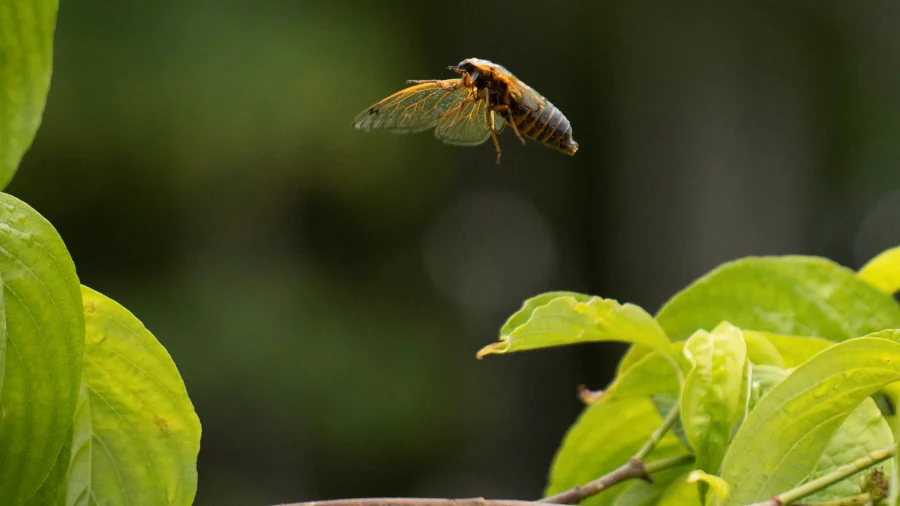In 17 different states, two different broods of cicadas will emerge at the same time this April, a phenomenon that hasn’t been seen since 1803.
Thomas Jefferson was president the last time the brood XIX and XIII cicadas emerged at the same time. Brood XIX only comes out every 13 years, and Brood XIII every 17 years.
Because these are both prime numbers, the two breeds will only co-emerge every 13 x 17 = 221 years. The next co-emergence is not expected to be until 2244.
Brood XIX is active in 15 states: Alabama, Arkansas, Georgia, Indiana, Illinois, Kentucky, Louisiana, Maryland, Missouri, Mississippi, North Carolina, Oklahomo, South Carolina, Tennessee, and Virginia.
Brood XIII is only active in northern Illinois, Eastern Iowa, southern Wisconsin, and a small part of northwestern Indiana.
The only areas where both brood types are expected to overlap are a small part of Illinois and Indiana.
There will be billions or even more than a trillion creatures when they have all emerged.
Cicadas are large insects that are one to two inches long and have bulging red eyes. Their wingspan can be as long as three inches.
The insects do not eat crops and are not harmful to humans or pets, the Environmental Protection Agency said. They cannot lay eggs in people’s skin.
Birds and mammals can eat them safely. They also aerate lawns when present, making it easier for water to get into the ground.
They only live a few weeks after re-emerging, then provide compost for soil as they decompose.
The only damage cicadas may cause is to young trees since they lay their eggs in a slit in the tree.
Young foliage can be protected by wrapping it with netting so the cicadas can’t get to the tender bark.
“You cannot possibly be unaware that periodical cicadas are out, because they’re out by the millions and millions, and they’re noisy, charismatic, active insects that are just everywhere,” cicada expert John Cooley said.
“This summer, some will get a chance to witness a phenomenon rarer—and probably louder—than Halley’s comet,” Cooley said.
The groups of cicadas emerging this year hatched in 2007 and 2011. The newborn cicadas dropped from their trees to the ground and burrowed under it, spending the bulk of their life cycles underground eating xylem sap from the trees to grow bigger by tiny degrees.
Xylem sap is mostly water but has minerals and other compounds in it.
The cicadas emerge when the soil temperature reaches 64 degrees Fahrenheit. In the south, it could be late April, and up north, it will be later.
Catherine Dana, an entomologist and an affiliate at the Illinois Natural History Survey at the University of Illinois Urbana-Champaign, said she is excited to be in Illinois, where the breeds will be together in the same place.
“I’ve been looking forward to this for years,” Dana said. “We have two different broods emerging in the same state, and that’s a very rare thing.”
There isn’t a lot of overlap between the two broods’ territories, but there will be some areas where the two broods can be found together. Scientists are especially interested in seeing whether the two broods interbreed.
“They don’t often coincide in time, but to have them coincide in time and space is even more unusual,” insect ecologist at George Washington University John Lill said. “That’s what’s happening this year that’s generating a lot of buzz—pun intended.”
In all, the United States is home to seven different periodic cicada brood types, and all seven are expected to be present at the brood boundary.
Some of the brood types have already experienced interbreeding and may now interbreed even more with the newly emerged brood types.


